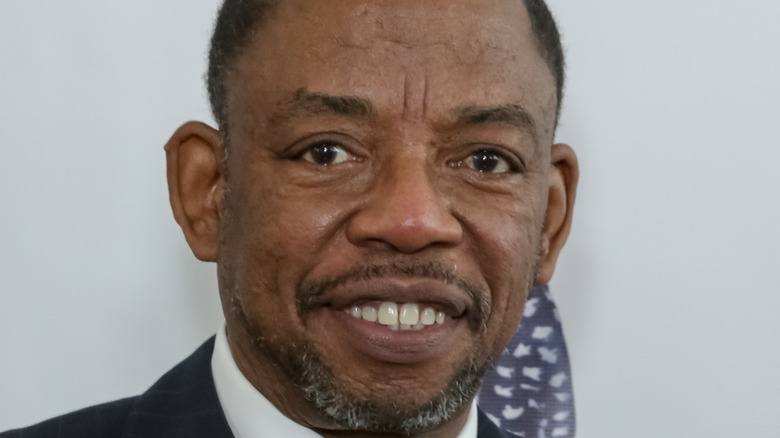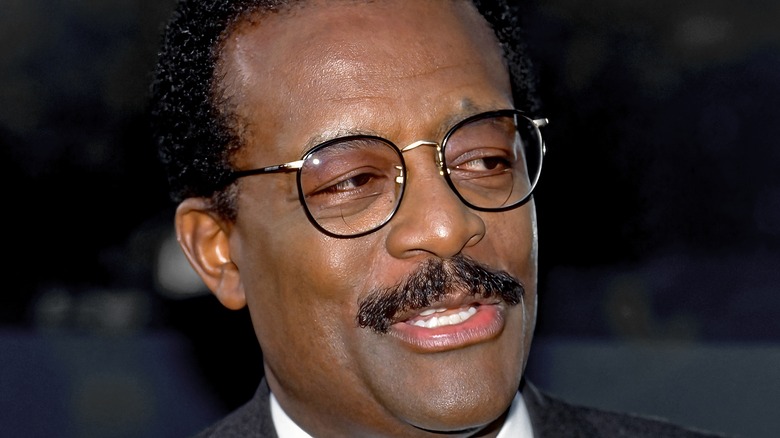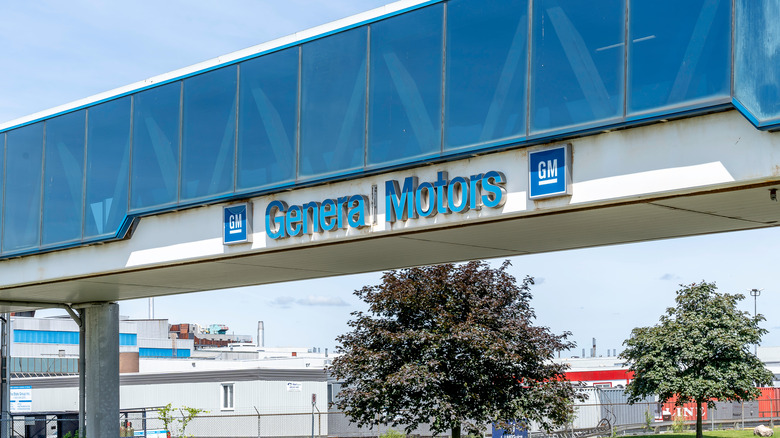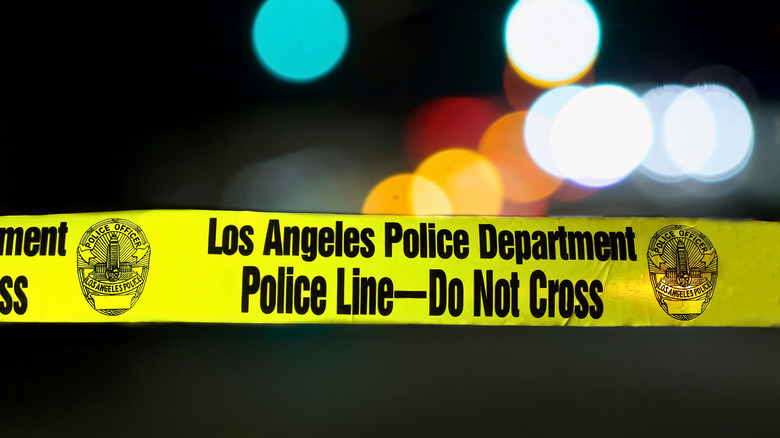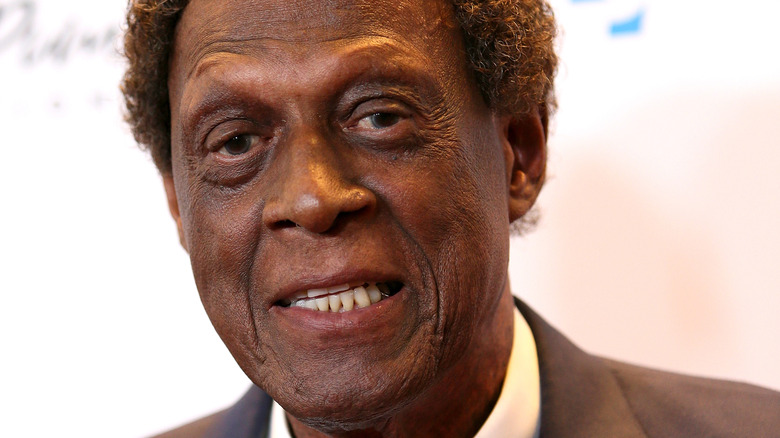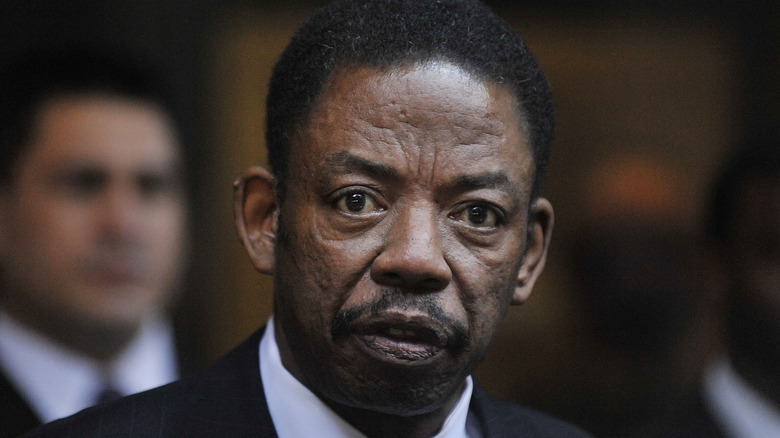What Happened To Carl E. Douglas From The OJ Simpson Case?
Carl E. Douglas was already well into his 30s when he became a familiar face throughout the United States and beyond as one of the most notable legal practitioners in American law. Born in New Haven, Connecticut, in 1955, Douglas cut his teeth as a trial attorney at the Los Angeles Federal Public Defenders' Office before joining the Law Offices of Johnnie Cochran Jr., a celebrated lawyer dealing with numerous high-profile cases for whom Douglas became managing attorney, per AAE Speakers.
As one of the leading figures in The Cochrane Firm, Douglas spearheaded the defense team's numerous superstar celebrities, including Tupac Shakur, Queen Latifah, and Michael Jackson. Douglas really became a headline staple as part of Cochran's "Dream Team," the expensively assembled defense squad asked with representing the defendant of the trial of the century: O.J. Simpson, who was accused of double murder. Douglas' expertise in cases involving police misconduct proved decisive in undermining various aspects of the prosecution's case and contributed to Simpson's sensational and unexpected acquittal in October 1995.
The O.J. Simpson trial remains the most famous case in Douglas' career. But what has happened to the lawyer in the years since?
Douglas leaves the Cochran Law Firm
Carl E. Douglas spent a total of 11 successful years as the managing attorney at Johnnie Cochran's (pictured) law firm, working as the coordinator on countless cases involving "personal injury, civil rights, and criminal law," according to his official website.
However, in 1998, Douglas believed he was ready to step out of Cochran's shadow and strike out on his own. That year, Douglas established his own law firm, a private practice operating in Los Angeles. Soon after, he was joined by fellow lawyer Jamon R. Hicks, a former colleague from his time working at the Cochran Firm with a broad range of legal specialisms spanning both criminal and civil matters at both the federal and state level. Hicks became Douglas' named partner in the business, and Douglas/Hicks Law continues to operate today and is involved in a steady flow of high-profile cases.
Patricia Anderson vs. General Motors
While Carl E. Douglas has enjoyed a lucrative and respectable legal career in the decades since he parted ways with the Cochran Firm, one of the most notable cases the high-flying lawyer has been involved in since leaving Johnnie Cochran's practice occurred all the way back in 1999, just months after Douglas established his own firm. The case, known as "Patricia Anderson vs. General Motors," revolved around a horrific accident in which Anderson — represented by Douglas — her friend Jo Tigner, and her four children suffered life-changing injuries following an automobile collision. (via The New York Times). Anderson claimed the injuries were more severe as a result of General Motors failing to address a known manufacturing default with her model of car.
As the Los Angeles Times reported, Douglas helped to bring about a unanimous decision from the jury with regard to General Motors' guilt and secured a huge $4.9-billion dollar payout from the corporation, an amount that beat the previous personal injury lawsuit payout by a factor of 10.
The killing of Maurice Cox
Another major case in which Carl E. Douglas played a decisive role concerned Maurice Cox, an unarmed Black motorist who was shot to death by Los Angeles police officers on March 1, 2008. As reported by Alex Alonso — a journalist for streetgangs.com, who was at the scene and captured part of the incident on camera — Cox had been involved in a hit-and-run and had later crashed his vehicle into a tree on Crenshaw Boulevard. The vehicle was then surrounded by a police perimeter, though Cox was unwilling to leave his vehicle on the officers' command. Eventually, he made an effort to flee the scene and was shot by police, dying from his injuries soon after.
The LAPD released a statement claiming that Cox had pointed an object resembling a weapon at police officers after leaving his vehicle and attempted to characterize the incident as "suicide by cop." Cox's widow, Laura, contested the account, and with Douglas' help, she brought a $10 million case against the sheriff's office. Douglas explained (via the Los Angeles Times): "This wasn't a suicide by cop. He never went toward officers. He ran away when they fired." Douglas said Cox's death was the result of "contagious fire," with multiple officers firing upon the unarmed man, who was spooked by the sound of the first couple of shots fired by their colleagues.
According to the Douglas/Hicks Law website, the case was eventually settled in Mrs. Cox's favor, with the widow being awarded $8 million dollars as compensation for her husband's wrongful death.
Elgin Baylor's discrimination case
More than a decade after he helped the O.J. Simpson defense team to victory, Carl E. Douglas returned in 2009 to the world of celebrity sports with another widely reported case, this time on behalf of the basketball star Elgin Baylor (pictured). After an illustrious playing career in the NBA with Minneapolis/Los Angeles Lakers, Baylor spent 22 years as the general manager of the Los Angeles Clippers. Baylor had apparently resigned from his post with the Clippers in 2009 at the age of 74. However, as reported by ESPN, Baylor later held a press conference at Douglas' law office claiming that he was pushed out, had been improperly compensated for the work he had put into the Clippers, and worked for many years without a proper contract. In the conference, he announced he was suing the Clippers and the NBA, citing race and age discrimination.
Per HuffPost, Baylor's complaint centered around the behavior of Clippers owner Donald Sterling. When recordings emerged in 2014 of Sterling making racist comments to his then-girlfriend, Douglas claimed that he was "not the least bit surprised," adding: "One time when [the lawsuit] became particularly heated ... he threw his gum at me across the table." However, Baylor's suit was rejected by the Los Angeles County jury.
'The fifth quarter'
Carl E. Douglas has become a regular guest on a slew of TV talk shows, radio phone-ins, and podcasts in the wake of the release of "O.J.: Made in America," the documentary that saw him emerge from the shadow of the other big personalities who dominated the O.J. Simpson defense Dream Team. In recent years Douglas' charisma has made him one of the most visible commentators on the ongoing trials and tribulations of his former client, most notably at the time of Simpson receiving a 33-year prison sentence for armed robbery, which was handed down to him in 2008. Douglas made an appearance on"The Rich Eisen Show" to explain his belief that the ruling was retribution for the Simpson defense team's victory in the 1995 murder case, describing Simpson's sentence as "the fifth quarter."
"I grew up in Los Angeles ... our school was not the greatest football team ... and whenever we would play a football game there would often be a fight after the game. We called the fight the fifth quarter. That is exactly ... what happened here," he said.
